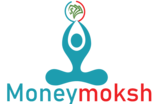What is Economic Recession – How to deal with it?

A recession is defined as a dramatic drop in economic activity that lasts months or even years. When a country’s economy faces negative gross domestic product (GDP), growing unemployment, declining retail sales, and contraction income and manufacturing metrics over an extended period of time, experts declare a recession. Recessions are regarded as an inevitable component of the economic cycle or the predictable rhythm of expansion and recession in a country’s economy.
In a recession, businesses struggle to sell products, people lose their jobs, and the nation’s overall economic output falls. The number of variables determines when the economy enters a recession formally.
Also Read: How to choose the right Fund Manager – Basic criteria
Why do recessions happen?
A recession can occur due to different reasons, such as an unexpected economic shock or the effects of excessive inflation. These are some of the major causes of a recession:
Unexpected Situation: An unexpected situation that causes big economic loss is referred to as an economic shock. In the 1970s, OPEC abruptly stopped supplying oil to the United States, sparking a recession as well as protracted queues at gas stations. A more recent example of a quick economic shock is the coronavirus outbreak, which impacted economies worldwide.
Excessive debt: If people or companies take on too much debt, the cost of servicing it may rise to the point where they are unable to pay their debts. The economy then collapses due to increasing debt defaults and bankruptcies. A recession brought on by excessive debt was most prominently demonstrated by the mid-2000s housing bubble that caused the Economic Recession.
Asset bubbles: Negative economic consequences aren’t far behind when investment decisions are prompted by emotion. During a booming economy, investors may get overconfident. When discussing the disproportionate increases in the stock market in the late 1990s, former Fed Chair Alan Greenspan famously referred to this tendency as “irrational exuberance.” Stock market or real estate bubbles are inflated by irrational enthusiasm, and when they burst, panic selling may cause a market crash and a recession.
Too much inflation: Over time, prices tend to rise steadily, which is known as inflation. Although excessive inflation is a risky situation, inflation itself isn’t necessarily a bad thing. By hiking interest rates, central banks can control inflation, but doing so reduces economic activity. The 1970s saw persistent issues with out-of-control inflation in the United States. The Federal Reserve abruptly increased interest rates in an effort to break the cycle, which brought about a recession.
Too much Deflation: A recession can be brought on by excessive inflation, but it can also be brought on by too much deflation. Deflation occurs when prices drop over time, which lowers wages, which lowers prices even more. When a deflationary feedback loop becomes uncontrollable, consumers and businesses stop making purchases, which hurts the economy.
Technological change: When new discoveries boost productivity and benefit the economy in the long run, there may be short-term periods of adjustment to them. Numerous technological advancements that reduced labor was made in the 19th century. The Industrial Revolution led to recessions and difficult times by rendering entire professions obsolete. Some economists today are concerned that the abolition of entire job categories by AI and robotics could trigger recessions.
What Distinguishes a Recession from a Depression?
Although the causes of both recessions and depressions are similar, a depression has much, much worse overall effects. Greater job losses, higher unemployment, and sharper GDP decreases are all present. A depression lasts for years rather than months, and it takes longer for the economy to recover.
Decade of Great Depression
The GDP decreased by 30% and unemployment increased to 25% during the Great Depression.
Since the Great Depression, the Great Recession has been the worst recession on record. The Great Recession officially ran from December 2007 to June 2009, or around one and a half years, with an unemployment rate peaking at nearly 10%.
Depending on how long it persists, some analysts were worried that the coronavirus recession might turn into a depression. In May 2020, the unemployment rate reached 14.7 percent, which is the highest level since the height of the Great Recession.
How Will Recession Affect Me?
- As unemployment rates rise during a recession, you can lose your job. Because more individuals are unemployed, it becomes much tougher to obtain a job replacement in addition to being more likely that you would lose your existing one. Those who keep their positions may experience pay and benefit reductions and find it difficult to negotiate pay increases in the future.
- A recession can cause investments in stocks, bonds, real estate, and other assets to lose money, lowering your savings and disrupting your retirement plans. Even worse, you can risk losing your home and other possessions if you are unable to pay your expenses as a result of losing your work.
- During a recession, business owners have lower sales and could even be forced into bankruptcy. It’s challenging to keep everyone afloat during a severe downturn, but the government tries to assist enterprises during these trying times, like with the PPP during the coronavirus epidemic.
- Lenders tighten requirements for mortgages, auto loans, and other forms of finance during a recession as more people become unable to pay their payments. As would be the case in more normal economic circumstances, you need a higher credit score or a greater down payment to qualify for a loan.

Disclaimer– This Website and related pages are only for information, educational & learning assistance. Please consult your financial advisor for assistance before investing. Personal opinion only for reviews, feedback, and educational purpose. We are not SEBI registered.





One thought on “What is Economic Recession – How to deal with it?”